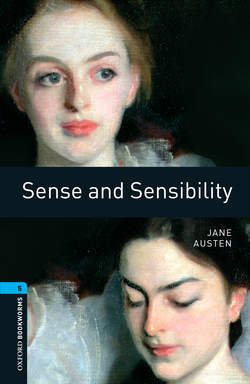Читать книгу Sense and Sensibility - Jane Austen - Страница 4
1
The Dashwood family
ОглавлениеFor very many years there had been Dashwoods living in Sussex, in the south of England. The family owned a large area of land around their country house, Norland Park. Recently the head of the family, an unmarried man of great age, had invited into his home his nephew, who was expected to inherit the house and land, with his wife and children. The nephew, Mr Henry Dashwood, and his wife behaved kindly and thoughtfully towards the old gentleman, not from interest in his fortune, but from goodness of heart, so that he was able to spend his last years comfortably with these pleasant and cheerful companions.
By his first wife Mr Henry Dashwood had one son, John; by his present wife, three daughters. John, a respectable, serious young man, had received a large inheritance from his mother, and had also added to his wealth by his own marriage. To him, therefore, the Norland fortune was not as important as to his sisters, who had very little money of their own.
When the old gentleman died, it was discovered that he had not left his fortune to Henry Dashwood to do what he liked with, but only to use during his lifetime. On Henry Dashwood’s death, the inheritance would pass to his son John, and to John’s son, a child of four years old. The old man had become fond of the small boy on his occasional visits to Norland, and so a spoilt child was preferred to Henry Dashwood’s gentle wife and daughters, in spite of their years of loving care. No unkindness had been intended, however, and as a sign of his affection for the girls, the old gentleman left them one thousand pounds each.
At first Mr Henry Dashwood was bitterly disappointed, as he had wanted the fortune more for his wife and daughters than for himself. But he soon realized that if he was careful with money in the next few years, he could save enough to provide generously for his family. Unfortunately, he did not live to carry out this plan, as he survived his uncle by only one year, and ten thousand pounds was all that remained for his widow and daughters.
Just before his death he sent for his son, and begged him to take care of his stepmother and sisters. Mr John Dashwood had not the strong feelings of the rest of the family, but such a request at such a time naturally had an effect on him, so he promised to do everything he could to make his father’s family comfortable. He was not a bad young man, but rather cold-hearted, and rather selfish, although he was, in general, well respected. If he had married a pleasanter woman, he would probably have been even more respected and perhaps have become pleasanter himself, but his wife was colder and more selfish than he was.
As soon as his father was dead and buried, Mrs John Dashwood arrived unexpectedly at Norland with her child and her servants. She wished to make it clear that, as the house belonged to her husband from the moment of his father’s death, she did not need any invitation from her mother-in-law. To a widow in Mrs Dashwood’s situation, this appeared unforgivable. In fact, Mrs Dashwood, a sensitive and generous woman, felt so strongly about her daughter-in-law’s unpleasant behaviour that she would have left the house immediately, if her eldest daughter had not begged her to reconsider.
Elinor, this eldest daughter whose advice was so useful, had a great deal of intelligence and common sense and, although only nineteen, frequently acted as her mother’s adviser. To the advantage of the whole family, she was often able to persuade Mrs Dashwood to hold back the violent enthusiasms which were likely to lead them all into difficulties. Elinor had an excellent heart, full of affection, and although her feelings were strong, she knew how to control them. This was something which her mother had not yet learnt to do, and which Marianne, one of her sisters, had decided never to learn.
Marianne was, like Elinor, generous, clever, and sensitive, but, unlike Elinor, she was eager in everything; her feelings were always strongly felt and expressed. In this, she was very similar to her mother. Elinor saw with concern how little her sister could control her feelings, but her mother loved Marianne for her sensibility. Now, after Mr Henry Dashwood’s death, Mrs Dashwood and Marianne encouraged each other in the violence of their unhappiness, becoming more and more miserable as they remembered the past and thought bitterly of the future. Elinor, too, suffered deeply, but she could still make an effort to discuss business with her brother, be polite to her sister-in-law, and try to persuade her mother to be calmer.
